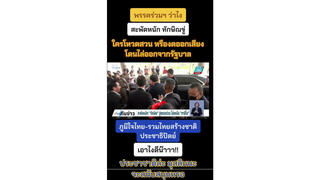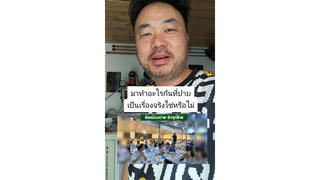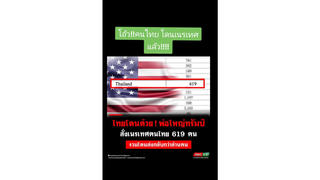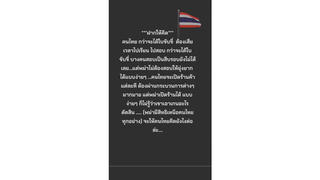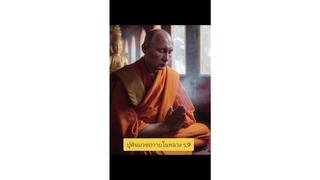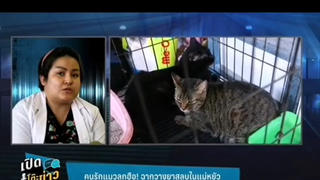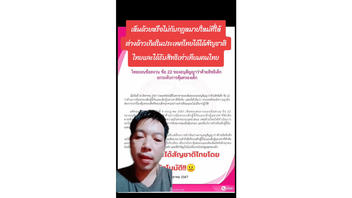
Did Thailand pass a new law to grant birthright citizenship to children of migrants from Myanmar born in Thailand? No, that's not true: The country withdrew its reservation to an article of the United Nations Convention on the Rights of the Child. Officials said this move would enhance protections for young non-citizens.
The claim appeared in a video posted on TikTok on August 8, 2024 (archived here).
The video had the following caption (translated from Thai into English by Lead Stories staff):
#Green Screen #Alien Labor Getting Thai Citizenship #Same Benefits As Thai People #Aliens #Burmese Labor #Ministry of Social Development and Human Security #Varawut Silpa-archa #Thailand #Political News
This is what the post looked like on TikTok at the time of writing:
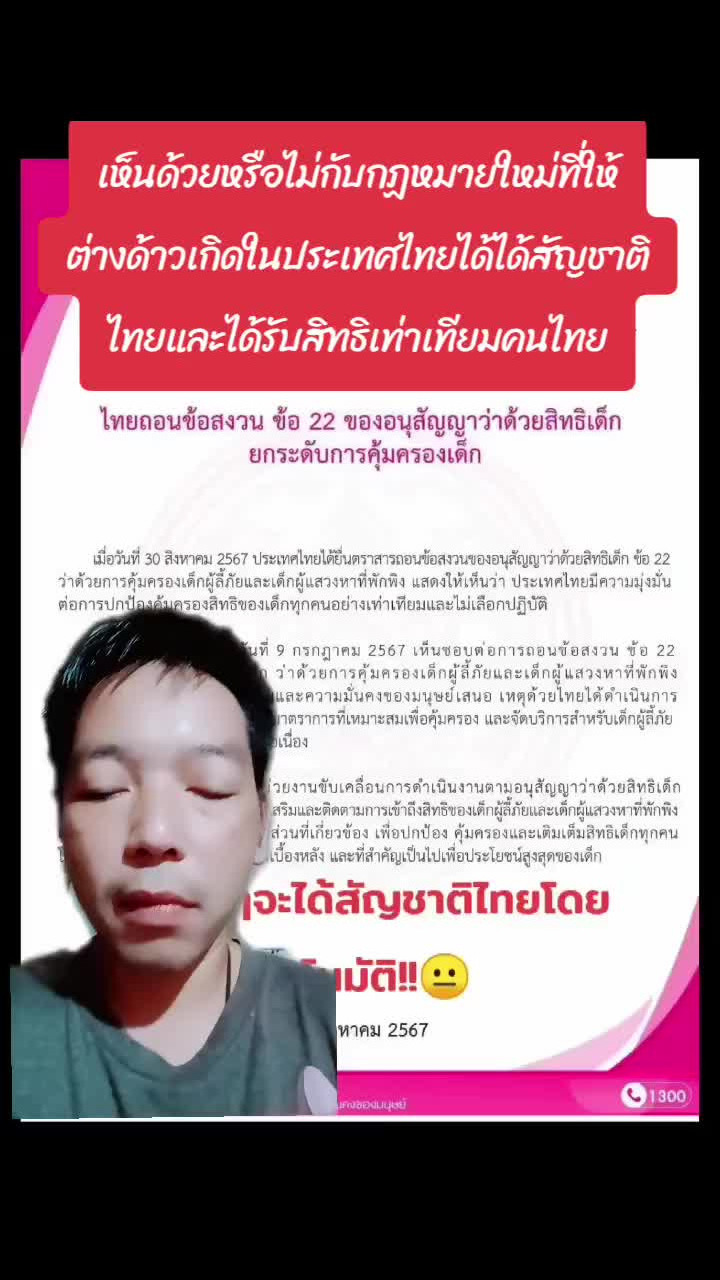
(Source: TikTok screenshot taken on Thu Sep 12 11:40:12 2024 UTC)
The video features a man addressing Varawut Silpa-archa (archived here), the Minister of Social Development and Human Security, against the backdrop of an official announcement (archived here) from the Department of Children and Youth. The announcement, as translated, read: "Thailand withdraws its reservation on Article 22 of the Convention on the Rights of the Child, enhancing children's protections."
In the video, the man claims that if a laborer from Myanmar gives birth in Thailand, the child will receive Thai citizenship with the same legal status and benefits as Thai citizens. He questions why the Thai government would prioritize non-citizens over citizens and asks viewers if they agree with "the new law."
The legal changes referenced in the video pertain to Thailand's withdrawal of its reservation about Article 22 of the United Nations Convention on the Rights of the Child. According to a Department of Children and Youth's announcement from August 31, 2024 (archived here), this withdrawal is not a new law but a decision made by the cabinet on July 9, 2024, following a proposal by the Ministry of Social Development and Human Security.
The Convention on the Rights of the Child (archived here) was signed by 140 countries on November 20, 1989, according to the UN (archived here). Thailand ratified the Convention on March 27, 1992, according to the UN (archived here).
Article 22 of the Convention states:
1. States Parties shall take appropriate measures to ensure that a child who is seeking refugee status or who is considered a refugee in accordance with applicable international or domestic law and procedures shall, whether unaccompanied or accompanied by his or her parents or by any other person, receive appropriate protection and humanitarian assistance in the enjoyment of applicable rights set forth in the present Convention and in other international human rights or humanitarian instruments to which the said States are Parties.
2. For this purpose, States Parties shall provide, as they consider appropriate, co-operation in any efforts by the United Nations and other competent intergovernmental organizations or non-governmental organizations co-operating with the United Nations to protect and assist such a child and to trace the parents or other members of the family of any refugee child in order to obtain information necessary for reunification with his or her family. In cases where no parents or other members of the family can be found, the child shall be accorded the same protection as any other child permanently or temporarily deprived of his or her family environment for any reason, as set forth in the present Convention.
Neither the Convention nor the Department of Children and Youth's announcement mentioned granting citizenship to the children of laborers. Minister Silpa-archa addressed this in his TikTok post on August 9, 2024 (archived here), clarifying that the decision has been completely misunderstood.
Silpa-archa explained that Article 22 focuses on protecting children so they can develop physically and mentally. He noted that Thailand was the last country among the Convention's parties to withdraw its reservation to the Article. The Royal Thai Government corroborated this in a separate news release featuring Silpa-archa on September 9, 2024 (archived here).
"On the other hand, if there's a Thai person or a Thai child in hardship in foreign countries ... those countries must take care of the Thai kid just like their own kids, but not granting their citizenship," the minister added in the video, as translated.
Thailand's Nationality Act of 1965, amended in 2008, (archived here) specifies that a person born in Thailand does not receive citizenship if their parents entered and resided in the country illegally, were granted a temporary stay, or received leniency for temporary residence as a specific case.
On the reservation withdrawal, the UN Human Rights Office for South-East Asia released a statement on September 6, 2024 (archived here), welcoming the decision and stating that it will "greatly enhance the protection of the human rights of refugee and asylum-seeking children in Thailand."





